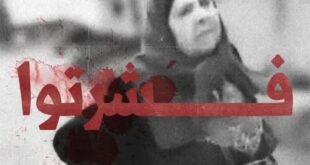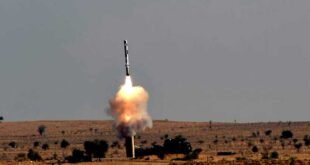Giancarlo Ella Valori
On the evening of November 2, on a day dedicated to the commemoration of the dead all over the world, the centre of Vienna was shocked by a terrorist attack that left 4 dead and 17 wounded. Near the synagogue of the Austrian capital city two men armed with rifles and pistols fired on the people crowding the streets, bars and pubs on the last “free” evening before the lockdown and the curfew imposed by the spread of the Covid-19 pandemic.
One of the attackers was killed by the police, while a large police force is still actively searching for the other, together with possible accomplices. The action has not been claimed, but the authorities are certain that this is yet another Islamist attack, in the wake of the tensions that broke out in France after the beheading of Professor Samuel Paty and the subsequent massacre in Nice.
On October 16 last, the 47-year-old French professor was attacked in the street of a small village 35 kilometres north of Paris by a young Chechen-born, naturalised Frenchman, Abdoullah Anzorov, who, armed with a sharp knife, beheaded him as a professional killer.
The professor was “guilty” of having shown in class the cartoons on Muhammad published by the satirical magazine Charlie Hebdo at the end of 2014. For that reason, it had seen many of his journalists fall under the gunfire of the jihadists on January 7, 2015. Professor Paty wanted to show the cartoons to his pupils to explain that “Freedom” in France also means freedom of satire.
The initiative provoked the reaction of Muslim students and their parents, with protests on Facebook that drew the attention of the French-Chechen Anzorov, also thanks to a young “Judas” (perhaps a pupil of Professor Paty) who for 300 euros (the new “thirty coins” Judas asked to betray Jesus) agreed to point at the professor while walking home after class.
The episode rightly outraged and shocked the whole of France. Although distracted by the pandemic, President Macron did not hesitate to condemn not only the brutal murder but also those who, in the shadow of Muhammad, are blowing on the fire of radical Islamism in France in order to stir the emotions of young Muslims who think they can turn their anger at social and economic marginalisation into religious struggle. Words were followed by deeds: the French security forces started investigations and searches in all the Salafist circles in France, in which three hundred Imams from Turkey dictate the law.
Macron’s words and the reactions of the French security forces unleashed the anger of Turkish President Tayyp Recep Erdogan, who had no hesitation in calling his French colleague “insane” and accusing him of treating Muslims in France the same way Jews were treated in Hitler’s Germany.
If that had been confined to words – though well outside the limits of institutional correctness – the Macron-Erdogan quarrel could have been resolved with diplomatic means, but Erdogan’s words did more than irritate the French President. They sparked and legitimised extremist and jihadist reactions throughout Europe, with further very serious repercussions.
On October 29, in Notre Dame Cathedral, Nice, a young Tunisian from Italy, who had landed as an illegal immigrant on the Sicilian coast a few weeks before, killed three people to the cry of “Allah akhbar”.
It is evident that the Nice massacre, as well as Vienna’s, is due to a form of “induced terrorism” – a phenomenon that, in the past, always saw individuals or micro-groups turn into terrorists “by induction”, i.e. on the push of economic tensions or calls for mobilization, interpreted as calls for action.
How can we not see in Erdogan the moral instigator of the massacres in Nice and Vienna?
After France had recalled its ambassador to Turkey as a reaction to Erdogan’s insults and threats, the spokesman of the Turkish President issued an official note in which he defended the “Muslims in Europe” with these words: “We Muslims will not go away because you do not want us. We will not turn the other cheek when you insult us. We will defend ourselves and our own brothers at all costs”. Words that did not appear on Islamist social media, but were spread in an official communiqué of the Turkish Republic’s Presidency.
After the Nice massacre, the Turkish Foreign Ministry issued a communiqué condemning the attack and expressing solidarity with France.
Not a word from Erdogan.
Yet the Turkish President knows the value of words very well. At the beginning of his dazzling political career, as the first Islamist mayor of Istanbul, he immediately distinguished himself with the prohibition of alcohol sales in all public places in the city.
To emphasize the concept – in what was, at the time, still the secular Parliamentary Republic of Turkey – the then mayor of Istanbul published a poem which read as follows: “The minarets are our bayonets, the mosques are our barracks, the believers are our soldiers”.
Those words cost Erdogan dearly: accused of infringing the laws on secular State and inciting religious violence, he was forced to resign as mayor of the capital city and was sentenced to a ban from public office and four months in prison (without parole).
As can be seen, the authorities of the secular and enlightened Turkey built by Kemal Ataturk, after the dissolution of the Ottoman Empire, were able to react harshly to the Islamist impulses of a public figure.
A figure who has always managed to rise again and to obtain a resounding victory in 2002 in the general election with the AKP, the “Justice and Development Party”, he had founded in 2001, with the aim of bringing Turkey back on the right path of an Islamic Republic, thus abandoning Kemalist secularism which, inter alia, had seen Turkey as the first (and, for many years, the only) State with a Muslim majority to recognize the State of Israel as early as 1949.
Prime Minister for three consecutive terms, Erdogan distinguished himself for his increasingly authoritarian attitude and unscrupulous activism in foreign policy:
At the beginning of the uprising in Syria and the subsequent civil war in 2011, Erdogan played unscrupulously on the misfortunes of the Syrian government, by financing and supplying weapons to both the Syrian Liberation Army groups and the Caliphate militia. Only the intervention by Putin’s Russia in 2013 did prevent the victory of Isis and the Islamist militias against Assad’s forces and thwart Erdogan’s dream of becoming the kingmaker in the region.
The dream still lasts.
Having escaped a clumsy and disorganised coup in 2016, he immediately took advantage of it to throw hundreds of political opponents and journalists into prison and to promote a constitutional reform that turned the Turkish Parliamentary Republic into a Presidential Republic with a strong authoritarian imprint and governed by tailor-made rules that ensure him the possibility of remaining in power for the next fifteen years.
Since he decided to intervene in Syria, under the pretext of containing the Kurdish militias that alone courageously fought against the Islamic State, Erdogan’s international activism has had no longer limits.
Although the Syrian adventure did not end well – Turkey had to be satisfied with keeping control of a buffer zone on the border – Erdogan launched a series of unscrupulous and potentially dangerous initiatives for international stability.
He attempted to ship weapons to Hamas Palestinians in the Gaza Strip. He has maintained contacts with the Islamists of the Syrian Liberation Army and the ISIS survivors who, with Turkish help, still occupy the Syrian enclave of Idlib, by recruiting hundreds of them as mercenaries to be sent to the hot areas of his geopolitical and strategic interest. He intervened heavily in Libya in support of Tripoli’s weak government and the openly Islamist Misrata militias, in opposition to General Haftar and the Tobruk government supported by France, Egypt and Russia. He has revived – for no apparent reason – the conflict in Nagorno Karabakh, by convincing the Azerbaijani Muslims to attack – last September – the Armenian Christians in the region, supported by Russia and the West. He is sending military ships off Cyprus, claiming its possession thanks to the local Turkish micro-republic, and claims control of the continental shelf occupied also by Greek islands, which are potentially rich in gas.
It should be noted that all these are initiatives of a Member State of the Atlantic Alliance.
Although NATO has visibly lost its vigour and importance in recent years, the “Special NATO Committee” is active within it. It is a silent and efficient body to which the Intelligence Services of all NATO Member States adhere, which operates as a centre for the exchange and dissemination of sensitive information in the field of counter-espionage and counter-terrorism.
MIT, the Turkish intelligence service, is a traditional and efficient member of the “Special Committee” and automatically receives all information shared by the Member States’ Intelligence Services. This despite the fact that the Turkish government has proven and well-known links with jihadists from Isis and Jabhat Al Nusra, the most dangerous unit of the “Syrian Liberation Army”.
How much NATO intelligence currently ends up to jihadists, through MIT?
Are we currently sure of the wisdom to maintain such sensitive relations with the Intelligence Service of a country which, pushed by its leader, seems to be prey to an unstoppable Islamist drift?
Does the outdated value of the Incirlik air base justify the surrender of the West in the face of Erdogan’s increasingly unscrupulous and aggressive moves?
These seem to be rhetorical questions, the answer to which should be a peremptory series of “No”.
Yet NATO and Europe (not to mention Italy, which is silent and absent), probably distracted by the pandemic, do not seem willing to oppose a man that the then Turkish President Demirel defined “capable of anything”.
President Macron recalled the Ambassador from Turkey after Erdogan’s ill-considered words about the “persecution” of Muslims in France.
Not a whisper from Europe, NATO and Italy.
Surely the times of Fanfani, Mattei, Andreotti and other giants of European politics and business are far away, when with an efficient “back bench diplomacy” Italy played with intelligence on all the Mediterranean areas.
Currently there seem to be the times of embarrassed silence.
While Erdogan is taking advantage of our weaknesses.
Giancarlo Ella Valori
GIANCARLO ELIA VALORI
Honorable de l’Académie des Sciences de l’Institut de France
President of International World Group
 Geostrategic Media Political Commentary, Analysis, Security, Defense
Geostrategic Media Political Commentary, Analysis, Security, Defense





